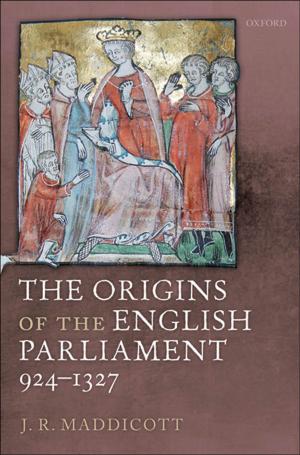J. D. Bernal
The Sage of Science
Biography & Memoir, Reference, Nonfiction, Science & Nature, Science| Author: | Andrew Brown | ISBN: | 9780191579509 |
| Publisher: | OUP Oxford | Publication: | November 24, 2005 |
| Imprint: | OUP Oxford | Language: | English |
| Author: | Andrew Brown |
| ISBN: | 9780191579509 |
| Publisher: | OUP Oxford |
| Publication: | November 24, 2005 |
| Imprint: | OUP Oxford |
| Language: | English |
J.D. Bernal, widely known as Sage since his undergraduate days at Cambridge, was a visionary scientist who was the first to see that the new subject of X-ray crystallography could be applied to the study of life. His pioneering work at Cambridge in the 1930s laid the foundation of molecular biology. He was one of the most influential and brilliant scientists of his time, inspiring many subsequent Nobel laureates. Bernal's restless energy and legendary intellect took him far beyond science. An astonishing polymath and a fervent Marxist, he was one of the central figures in a cosmopolitan intelligentsia in an age of extremes. The story of Bernal's life reflects the extraordinary political and intellectual climate in which he lived. He was witness to (and often involved in) some of the great events of the 20th century: the Easter Rebellion, schooldays in the Great War, the anti-fascist movement, the Second World War, pacifist causes and nuclear disarmament during the Cold War. He was a pioneer of Operational Research during WW2 and made the first objective analyses of the effects of bombing on cities. As this biography shows, he played a crucial role in planning the D-Day landings, arriving secretly on the Normandy beaches himself a day later. After the war, he became an international ambassador for Marxism, science, and peace, and was one of the few men familiar with Downing Street, the White House and the Kremlin. Brown's biography sets out a life richly and fully lived. Nearly every important British scientist of the mid-third of the 20th century appears in its pages, along with artists (Picasso, Hepworth), writers (Leonard and Virginia Woolf, Aldous Huxley, Pablo Neruda) and statesmen (Churchill, Khrushchev, Mao, and Nehru). This compelling account draws on unprecedented access to Bernal's papers and war reports to piece together a dazzling image of Bernal: his Irish Catholic childhood, his Cambridge years, his research, his dedication to science, his intellectual brilliance, his blind, unswerving commitment to Marxism, his unorthodox Bohemian love life. But above all, the Bernal who emerges from this often critical account is a man not only of remarkable mental powers but of great warmth, kindness, and humanity.
J.D. Bernal, widely known as Sage since his undergraduate days at Cambridge, was a visionary scientist who was the first to see that the new subject of X-ray crystallography could be applied to the study of life. His pioneering work at Cambridge in the 1930s laid the foundation of molecular biology. He was one of the most influential and brilliant scientists of his time, inspiring many subsequent Nobel laureates. Bernal's restless energy and legendary intellect took him far beyond science. An astonishing polymath and a fervent Marxist, he was one of the central figures in a cosmopolitan intelligentsia in an age of extremes. The story of Bernal's life reflects the extraordinary political and intellectual climate in which he lived. He was witness to (and often involved in) some of the great events of the 20th century: the Easter Rebellion, schooldays in the Great War, the anti-fascist movement, the Second World War, pacifist causes and nuclear disarmament during the Cold War. He was a pioneer of Operational Research during WW2 and made the first objective analyses of the effects of bombing on cities. As this biography shows, he played a crucial role in planning the D-Day landings, arriving secretly on the Normandy beaches himself a day later. After the war, he became an international ambassador for Marxism, science, and peace, and was one of the few men familiar with Downing Street, the White House and the Kremlin. Brown's biography sets out a life richly and fully lived. Nearly every important British scientist of the mid-third of the 20th century appears in its pages, along with artists (Picasso, Hepworth), writers (Leonard and Virginia Woolf, Aldous Huxley, Pablo Neruda) and statesmen (Churchill, Khrushchev, Mao, and Nehru). This compelling account draws on unprecedented access to Bernal's papers and war reports to piece together a dazzling image of Bernal: his Irish Catholic childhood, his Cambridge years, his research, his dedication to science, his intellectual brilliance, his blind, unswerving commitment to Marxism, his unorthodox Bohemian love life. But above all, the Bernal who emerges from this often critical account is a man not only of remarkable mental powers but of great warmth, kindness, and humanity.















